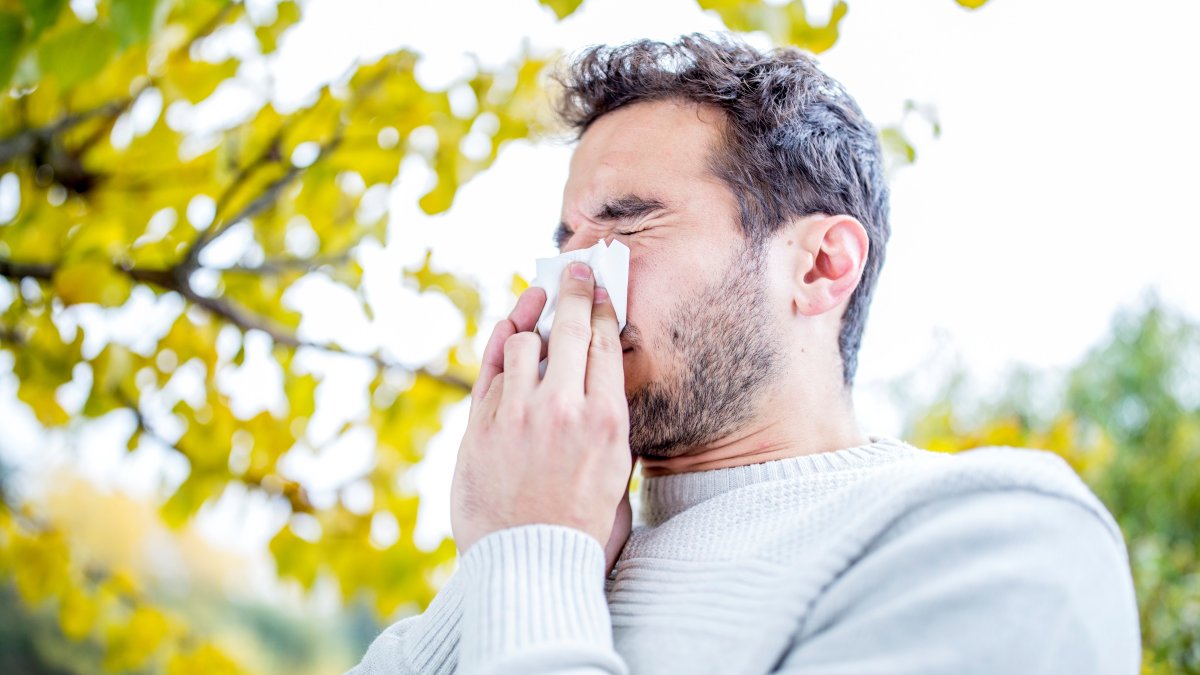Suffering from a sore throat, stuffy nose, sneezing spells or itchy eyes? It could due to seasonal allergies, thanks to high pollen counts in the Chicago area.
According to Dr. Rachna Shah, an allergist who conducts the Loyola Medicine daily pollen counts, late August and early September is “peak” ragweed and weed season.
“Over the past few weeks, we’ve been seeing it kind of increasing gradually,” Shah told NBC 5 health reporter Lauren Petty. “Now we’re at the peak of it, so hopefully the next couple weeks are going to be bad for those who are allergic to ragweed, and then things are going to start settling down.”
The latest tally from Loyola’s daily pollen count showed that weed and mold were at high levels, with ragweed moderate but rising.
According to Shah, mold at such high levels is unusual for this time of year.
“We had such a warm and humid early summer, we were getting high mold levels throughout the summer, and it’s just been increasing and increasing and increasing,” Shah said.
Shah said allergy sufferers typically wish for an early frost, because it can bring relief from symptoms, but that hasn’t happened in recent years.
“If it’s anything like the past couple years and we’ve had like, kind of these milder falls and winters, then it may be just mold is going to be a longer season and be increased,” Shah said.
Tips for managing allergy symptoms include:
- Minimize indoor pollen – Keep your windows shut and use your AC or a HEPA purifier to filter allergens.
- Shower after being outdoors – To remove pollen you pick up outside, take a shower and change your clothes.
- “All of that mold and pollen can kind of stick onto you too, so by washing it away, it helps a lot. Same with pets, if you have a pet and they’re going inside and outside a lot, wiping them off and so just kind of trying to decrease your mold and pollen exposure as much as possible,” said Shah.
- Know your allergy relief options – from medications to nasal sprays, talk to your doctor about your options.
“So if your family is having, like, a lot of itchy eye symptoms, there are over-the-counter eye drops that work really well. Nasal sprays are really good, and now we have two that are over the counter on the market,” Shah said.
Steroid nasal sprays, such as Flonase, can help reduce inflammation in the nasal passage and relieve symptoms of nasal congestions or a runny nose. They take about a week to work.
Antihistamine sprays, such as Astepro, block histamines and can have an impact right away.
